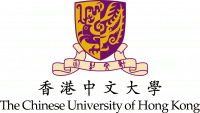Tissue Engineering: Improving Quality of Life through Biomedicine
From left to right:
1. Professor Rocky S. Tuan is widely recognised for his inventions in tissue engineering and regenerative medicine.
2. iTERM engages in multi-disciplinary research on neuromusculoskeletal regeneration.
The Institute for Tissue Engineering and Regenerative Medicine (iTERM) integrates multiple disciplines in biomedical sciences, engineering, and clinical medicine for the development of neuromusculoskeletal tissue engineering and regenerative medicine.
Professor Rocky S. Tuan’s work on stem cell aims to discover the mechanisms that regulate their regenerative ability to repair and restore function to tissues. He engineered the first three dimensional joint-on-a-chip, called the ‘microJoint’, to replicate a human joint and was elected fellows of the National Academy of Inventors and the China Association of Inventions for his ground-breaking work.
Prenatal Diagnosis: New Horizons in Non-Invasive DNA Tests
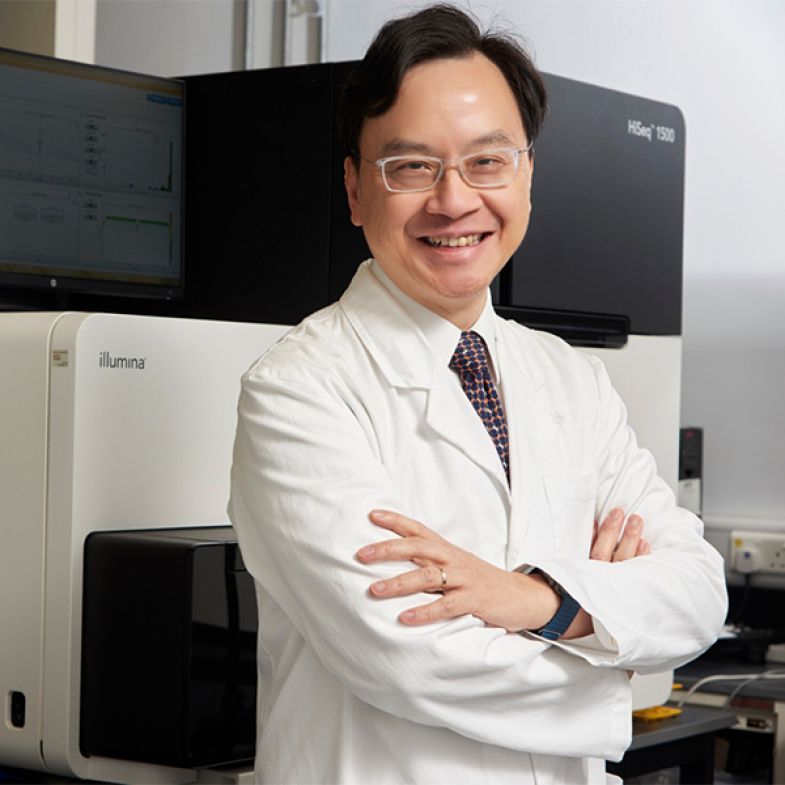 |
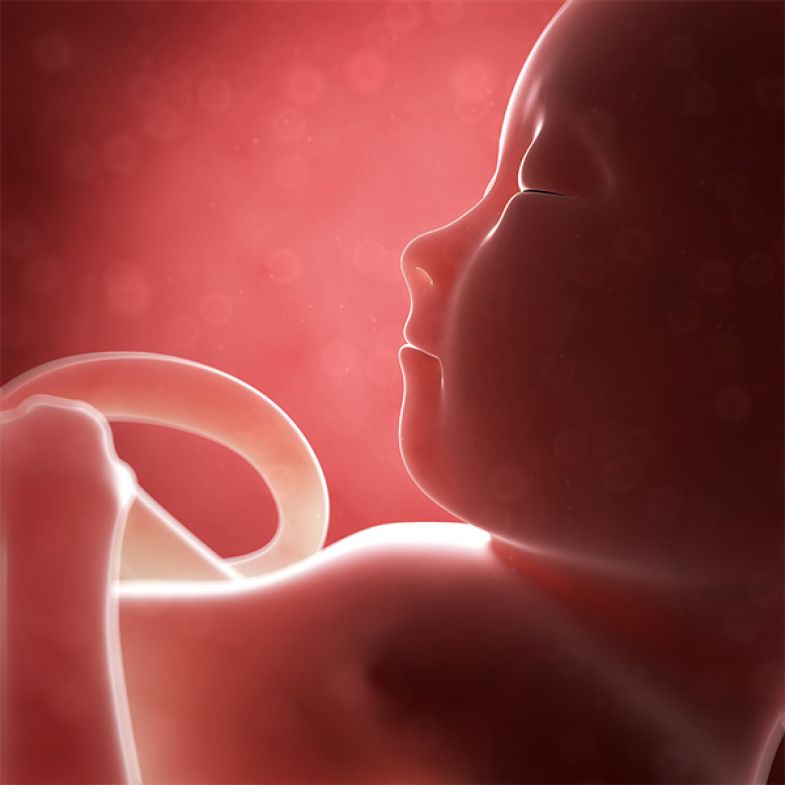 |
From left to right:
1. Ground-breaking research led by Professor Dennis Lo has benefited millions of women globally.
2. Discovery of cell-free foetal DNA in maternal plasma paved way for non-invasive DNA blood tests.
Professor Dennis Lo discovered the presence of cell-free foetal DNA in maternal plasma and pioneered a non-invasive DNA blood test for Down syndrome and other genetic diseases. He is also pushing forward the use of a similar approach for screening of early cancers. His work has brought him numerous honours including the King Faisal International Prize in Medicine in 2014 and the Future Science Prize in 2016.
Gastrointestinal Cancer Diagnostics: Novel Discovery for Detecting Malignancies
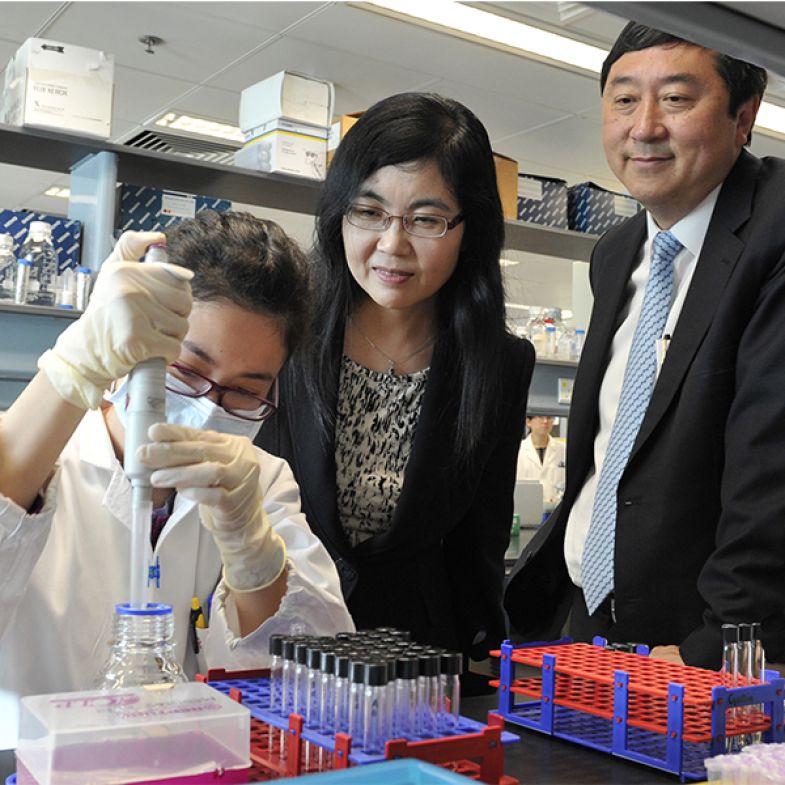 |
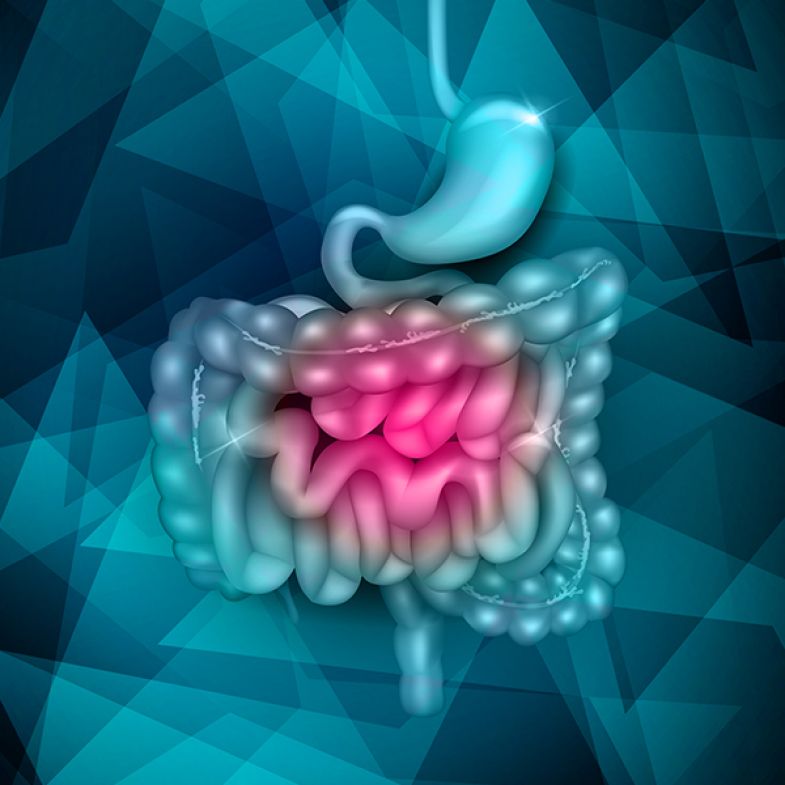 |
From left to right:
1. Professor Joseph Sung’s and Professor Jun Yu’s work has vastly improved the detection of GI cancers and effectively reduced the associated mortality rate.
2. New biomarkers for early screening of GI cancers identified result in development of non-invasive diagnostic kits for clinical use.
While Gastrointestinal (GI) cancers account for 40% of overall malignancies in the Chinese population, the traditional biomarkers for GI cancer diagnosis are not very reliable. Professor Joseph Sung and Professor Jun Yu have identified new biomarkers for early screening and prognostic predictions of GI cancers, allowing early treatment and reducing cancer mortality. In collaboration with biotechnology companies, non-invasive diagnostic kits for gastric cancer and colorectal cancer have been developed for clinical use.
Neurodegeneration: Innovating Cures for Rare Diseases
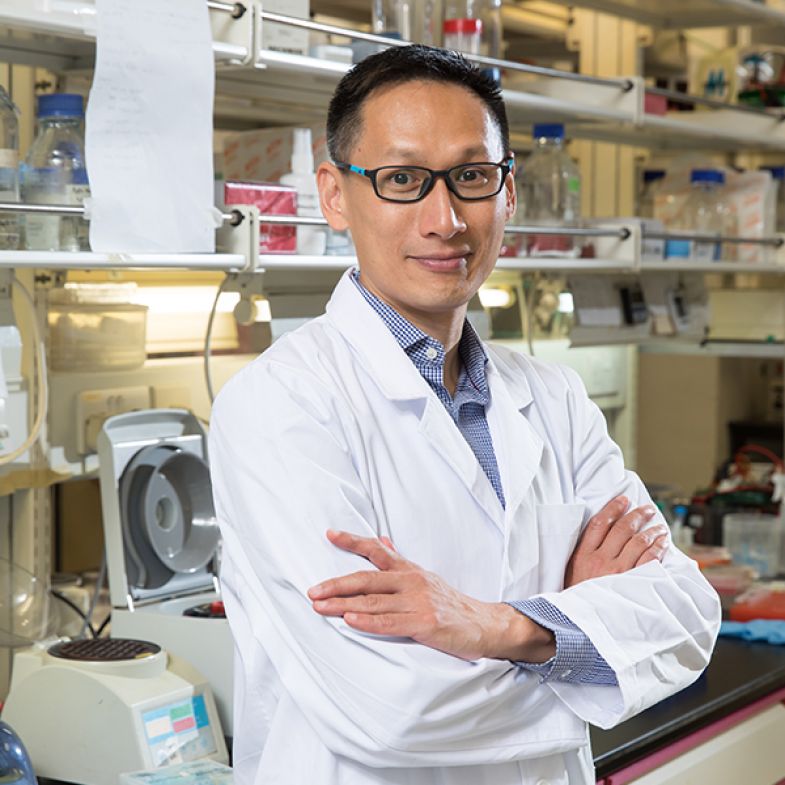 |
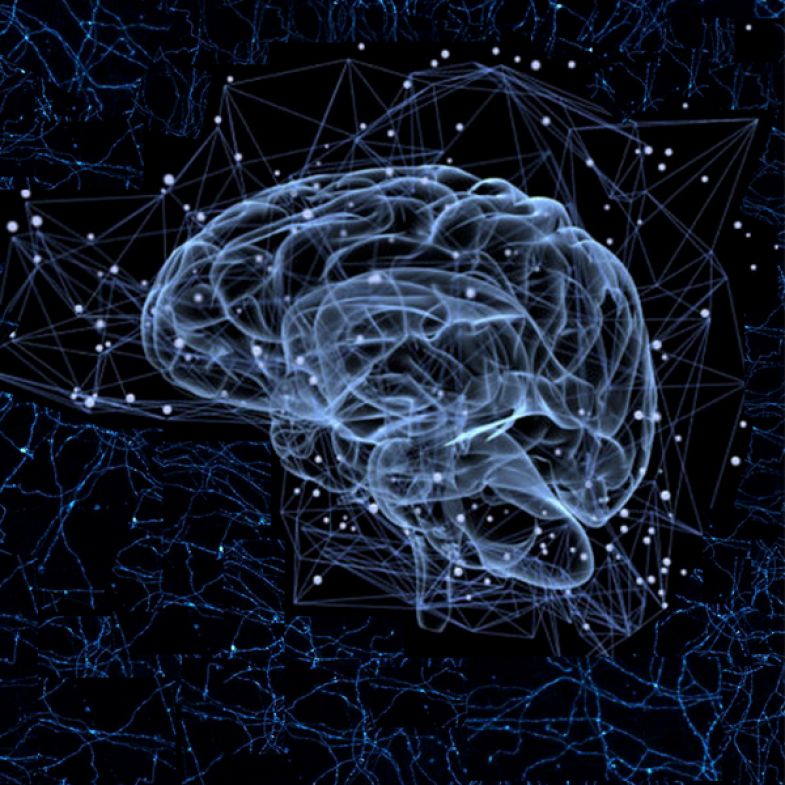 |
From left to right:
1. Professor H.Y. Edwin Chan’s team is pioneering ways to cure currently incurable neurodegenerative diseases.
2. CUHK’s research in neurodegeneration could lead to the cure of Huntington’s Disease, Spinocerebellar Ataxia, and Amyotrophic Lateral Sclerosis.
Led by Professor H.Y. Edwin Chan, CUHK’s pioneering research in the development of novel peptidylic and small molecule inhibitors has opened up new horizons in finding cure for rare neurodegenerative diseases which are currently incurable, including Huntington’s Disease, Spinocerebellar Ataxia, and Amyotrophic Lateral Sclerosis.
